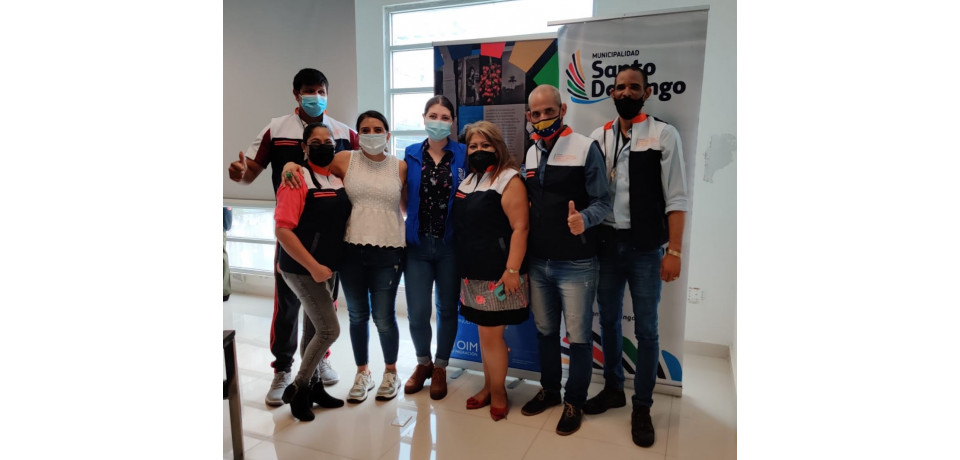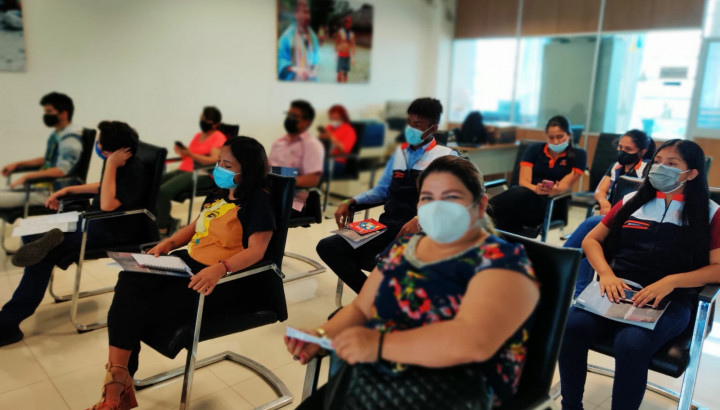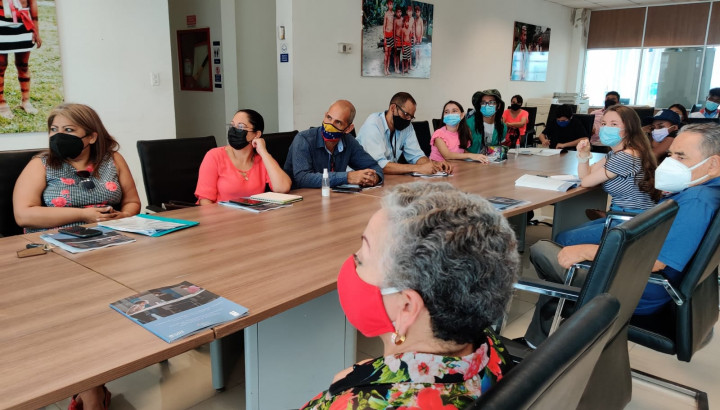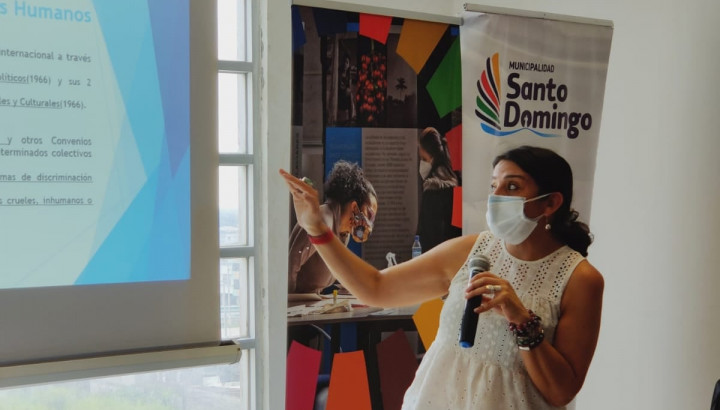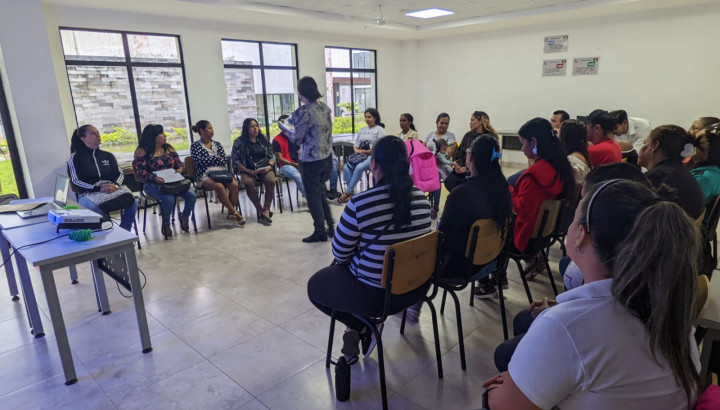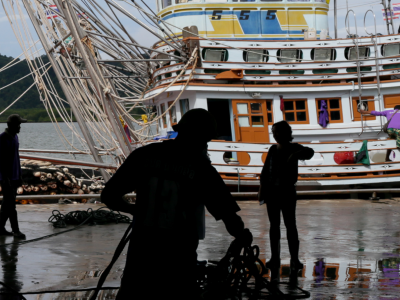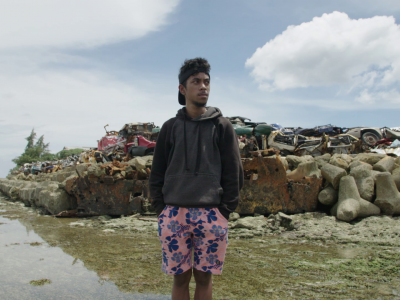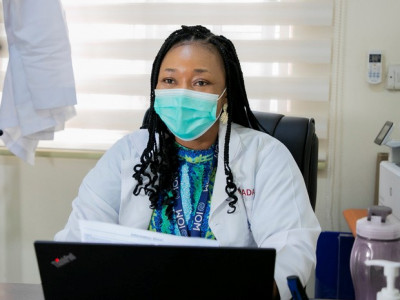Socio-economic integration in Santo Domingo de los Tsáchilas
Adriana Garces, IOM Ecuador, agarces@iom.int
Cristina Burgos, UNDP Ecuador, cristina.burgos@undp.org
Related Sustainable Development Goals and Global Compact for Migration Objectives
Summary
Santo Domingo hosts a significant number of refugees and migrants in need of social protection, mainly human trafficking victims from Colombia and Venezuela, and Ecuadorian returnees who face diverse challenges upon returning home. Its geographical location and characteristics have also turned it into a development priority for the country and a transit area for numerous immigrants aiming to move across Ecuador. As part of the IOM-UNDP Global Programme on Making Migration Work for Sustainable Development, this project ensures that members of the community, including immigrants and returnees, benefit from equitable access to better labour market integration and support to entrepreneurs and small businesses.
Key objective
The main objective of the project is to foster the community’s long-lasting socioeconomic development by supporting the generation of sustainable and formal livelihoods opportunities for the citizens of Santo Domingo de los Tsáchilas and the promotion of social and economic inclusion of community members in human mobility conditions.
Main activities
- Provide necessary technical assistance, technological equipment and infrastructure modifications for the creation of a co-working space within Santo Domingo’s “Centro de Capacitación Integral”
- Foster and strengthen strategic alliances between the municipality and local universities and TVETs, to assure the expansion of these capacity-building programs to more beneficiaries.
- Generate and update previously designed training modules, in order to address entrepreneurship, integration, biosecurity measures and tools aimed at navigating post COVID-19 realities and rising needs.
- Create an online marketplace managed and constantly updated by the municipality, where social and associative entrepreneurships and small businesses can sell their products without intermediaries.
- Create an online job bank where beneficiaries and other members of the community (including migrants, refugees and returnees) can be connected with private and public job positions.
- In collaboration with the municipality: Develop an award methodology to used as a recognition for private businesses which incur in good recruitment practices (hiring people in human mobility and other priority groups).
- In collaboration with the private sector: Support the development and dissemination of orientation materials for workers and employers that include labour market information, migratory categories and requirements, recruitment costs, opportunities and risks & create awareness raising material and programs on human mobility topics.
- Utilize a "training of trainers" methodology to train local authorities and technicians in Manta, Santo Domingo and Portoviejo in order to better build the capacities and knowledge of local governments in terms of inclusive contracting.
- Train migrants and non-migrant community members on careers and employability, aiming to strengthen their skills to search for jobs and access employment opportunities.
- In coordination with the municipality and the companies that have been trained in the program: organize a job fair, where people in situations of human mobility and the host community will have the opportunity to interact with the companies, know about the vacancies and apply for those opportunities.
Key successes or innovative factors, good practices and lessons learned (if available)
- A total of 79 people from 40 companies located in Santo Domingo and Manta were trained on inclusive recruitment processes based on the national regulatory framework and international standards for socio-economic inclusion of people on the move and host communities.
- More than 30 authorities and technicians from the municipalities of Manta, Santo Domingo and Portoviejo were trained through the "training of trainers" course on inclusive contracting topics. Local authorities can now act as trainers themselves and provide support for private sector actors who want to learn how to have more inclusive contracting and hiring processes. This methodology, whereby the government is empowered to act as experts that other local actors such as businesses can consult, ensures the sustainability and longevity of this initiative.
- More than 50 people in a situation of human mobility located in Manta and Santo Domingo have been trained in employability topics, which enhanced their job searching skills and competencies, and increased the possibilities of accessing decent jobs for them.
- The Cantonal Human Mobility Consultative Council was created to ensure that migrants, refugees and returnees can exercise their rights and have a voice in policymaking. The Council provides information, giving advice to people and migrants to navigate administrative processes, access local services, etc., and gathers data about migrant and displaced people’s needs. The Council is composed of migrants, refugees and returnees in Santo Domingo, which enhances trust with the community and allows for ownership. Council members use their knowledge about migrants’ situations to provide recommendations to the municipal government, shaping policy, programmes and key decisions. Read the case study with practical tips and lessons learned.
Beneficiaries
Local community members, including all categories of migrants, focusing on vulnerable groups
